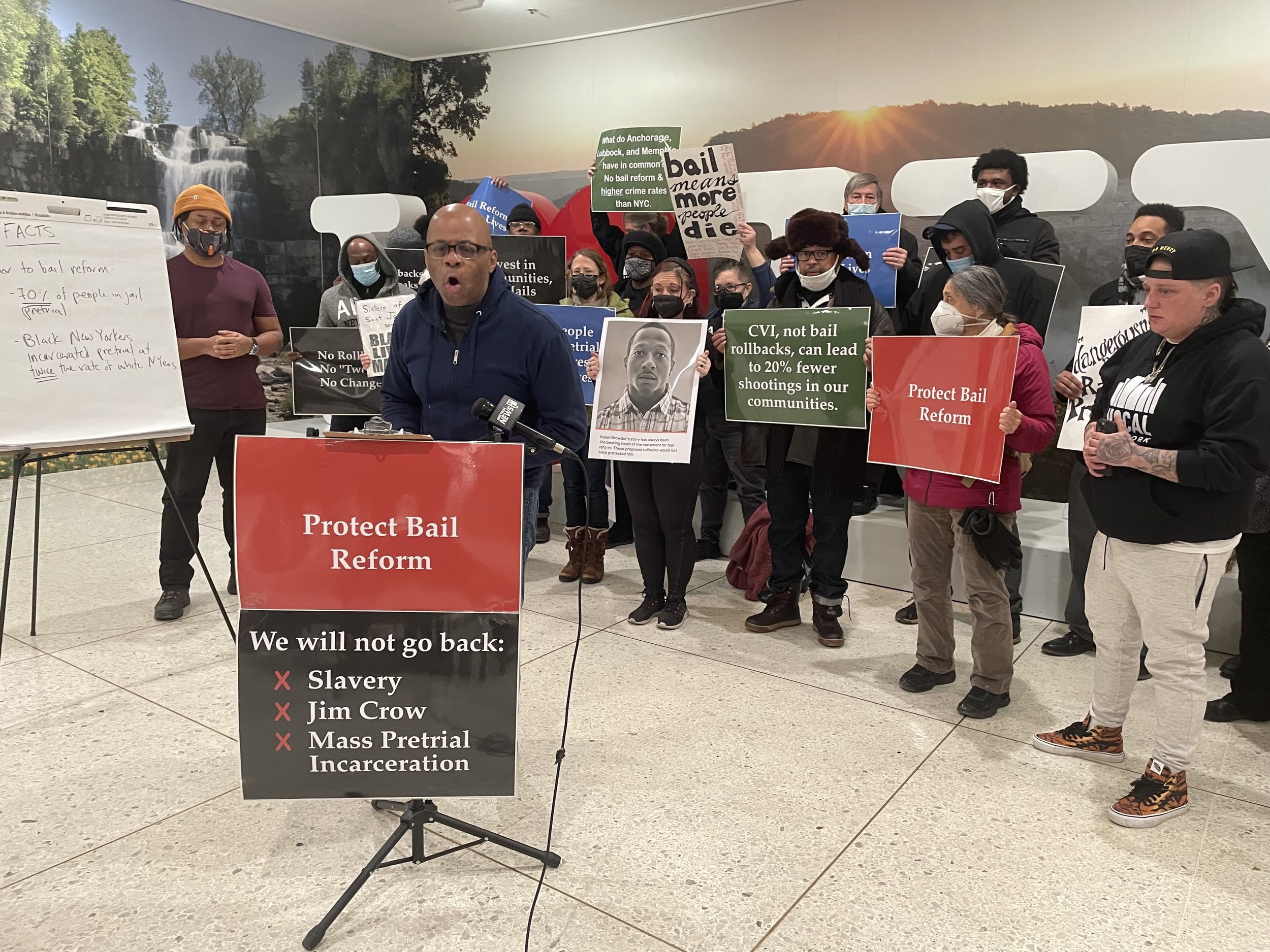Advocates condemn mischaracterization of bail reform
/Criminal justice advocates condemned Mayor Eric Adams and others for working to amend bail reforms amid a spike in violence in New York City. Photo via Center for Community Alternatives
By Rachel Vick
Prison reform advocates and elected officials rallied Monday to call for the protection of recently passed criminal justice reforms in the wake of criticisms of bail from New York City leaders including Mayor Eric Adams.
The group of advocates criticized the narrative connecting bail reform to the city’s increase in gun violence, underscoring the impact of bail reform of reducing pre-trial detention, which they say disproportionately impacts members of low-income communities of color.
“New Yorkers deserve real, immediate and lasting solutions to improve community safety, including targeted investments in violence prevention programs, stable housing, good jobs, access to mental health care, drug treatment and more – and we need them now,” said Marvin Mayfield, director of organizing at the Center for Community Alternatives. “But instead of focusing on evidence-based programs and repairing our frayed social safety net, some New York politicians have engaged in fear-mongering, misinformation and outright lies about bail reform.”
“These disingenuous attacks on New York’s common-sense bail reform law are a harmful distraction from what will actually support community safety and well-being,” he added. “The safest communities have the most resources, not the highest incarceration rates.”
Bail reform, amended to include additional charges less than a year after going into effect, reduces the offenses that are bail eligible — preventing judges from setting cash bail on a number of misdemeanors and nonviolent felonies. Neither set of reforms eliminated bail for violent crimes or weapons charges.
Less than 1 percent of people released pretrial are arrested for nonviolent or violent felonies each month, according to NYPD data.
Stanley Fritz, New York State political and campaigns director for Citizen Action of New York, condemned Adam’s continued alignment of crime with bail reform. He also noted that the response to the rise in gun violence shouldn’t match the response to crime in the ‘80s and ‘90s, when the murder rate was over four times what it was in 2021.
Fritz said the response should focus on the drivers of crime instead.
“This is a situation where we have Black leaders coming…to represent the community and if you’re honestly going to represent your community you have to represent the good, the bad and the ugly — the food insecurity, the unstable housing the lack of resources and also the crime,” he said.
“The only cages that exist are the narrowness of your mind,” he said. “Housing, homelessness mental health services…if that’s not what you’re talking about you shouldn't be talking.”
During a recent visit to Albany, Adams reissued the call for changes to the bail laws, included a revision the judiciary’s discretion as to the the degree of danger an individual presents upon release.
Though New York’s judges do not have universal authority to detain individuals based on predicted risk, 13.3 percent of people released pretrial in New York were rearrested on a felony allegation, according to the Vera Institute.
Lawmakers including Queens’ State Sen. Jessica Gonzalez-Rojas and Assemblymember Khaleel Anderson joined the event to call for more community services.
For every 1 percent of households facing food insecurity there is a 12 percent increase in crime, according to Anderson.
“I don't think we should be here today, we should be talking about how to move forward but we’re responding to leaders that want to move us backwards,” Anderson said. “We know that bail reform works, that our communities, if fully resourced, can be flourishing.”
“It's Black History Month and we're talking about repairing the harm that has been done to Black communities over generations and this is part of that repair,” he added. “Understand the historic context of what our communities have suffered for so long.”




